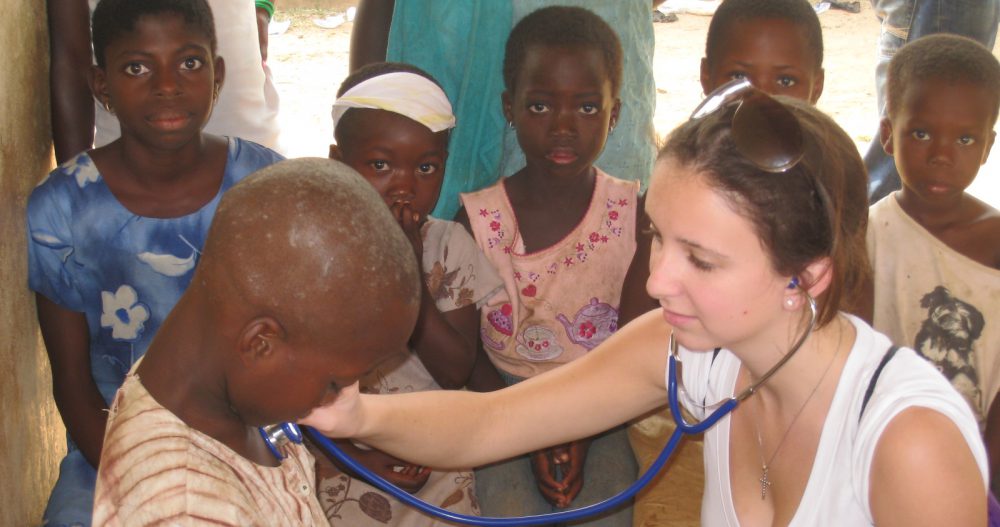1/13
It is Thursday morning and we are prepping to do a blood pressure clinic and make donations to the local hospital today. We have been in Kpando for about three nights and we are starting to get used to life here.
Shortly after we arrived here, I asked one of our guides what previous groups of nursing students did that had the most major impact. I was expecting the former nursing students made big strides through teaching and donations, but my mouth fell open when he said it was our compassion. He said Ghanaian nurses do not have the same compassion and caring that has been a part of American nursing for generations.
Our observation in the local hospital was eye-opening. It would be inappropriate for me to cite short-comings in their hospital model if I did not say they did a lot with very little. There were some very sick patients in the hospital, such as a women who presented with a perforated appendix or the severely sick children with end-stage malaria and HIV.
The interaction with the patients left all of the nursing students sick to our stomachs. While I can say some of the healthcare providers treated the patients with respect and dignity, we saw a lot of terrible things. We watched a woman get a c-section only to have the Spanish-speaking doctors verbally assault her in a different language, a midwife screaming and slapping a patient while she was vaginally delivering her baby, and many patients with dry IVs and no fluids at the bedside who were exibiting signs of dehydration.
It is hard to find our place here. Taking in cultural considerations and the fact that we are visitors, making suggestions does not seem possbile. Our suggestions do not seem to be welcomed. While we may seem like all-knowing visitors, our comments are intended to benefit the patients.
American nursing standard of practice is to be advocates for the patient. We are charged with keeping the patient safe and in the best possible state of health while in our care. This means we question the care the recieve, strive to provide the best, and struggle to implement changes for the better. Every time we ask why the doctors abuse the patients, healthcare providers screaming and hitting birthing moms, or patients being neglected and being withheld fluids, we are advocating for the patient. This practice is so fundamental in nursing care that the absence of it is sickening. This is why we find ourselves either intervening in into awkward situations, or leaving the room in frusteration – and even sometimes in tears.
We met an American nurse in the USEmbassy here. She said that she originally went into developing nations to provide healthcare, but got tired of “slamming her head against the wall.” We met her a few days into our trip, and I think now we understand what she was saying. Our medical and nursing models just seem so different, though I am trying to focus on the fact that no matter where we are from, we are all here for the patient.
I have to leave and post the blog entry stat, as we are about to board a bus to a small, poor fishing village. There we will be screening blood pressures, passing out some medications with our family nurse practicioner, and basically trying to provide first-line care. Honestly, besides bringing down dangerously high blood pressures (some were above 220 systolic), one of our biggest goals in bringing compassion to the patients. We focus on our eye contact, touch, comforting words, etc, to provide for these patients. Many of these people have never been touched by a healthcare providers, and seriously need just the phrase: “your heart is strong and you are healthy.”
I will try to write as soon as I can.
